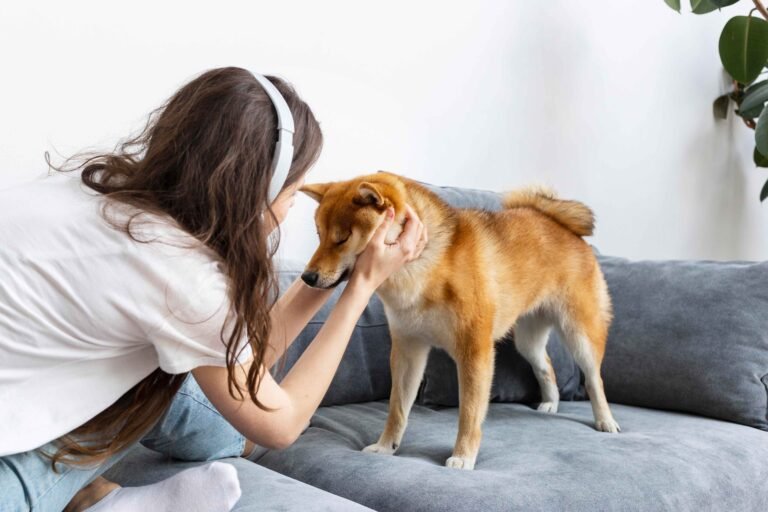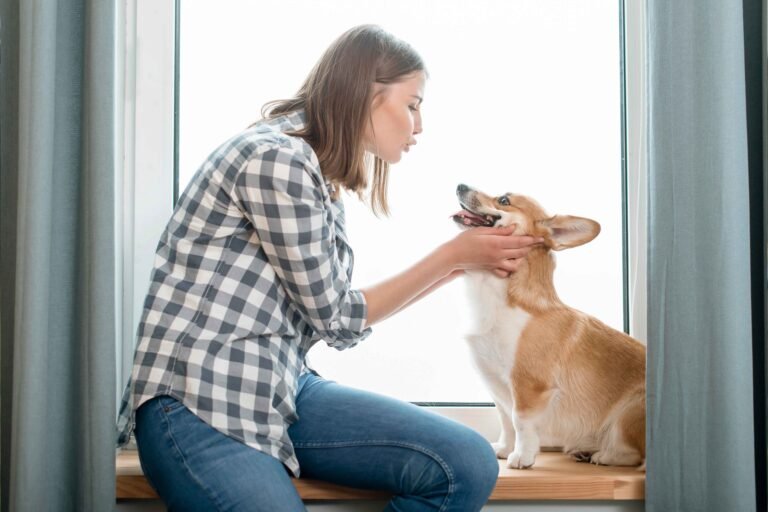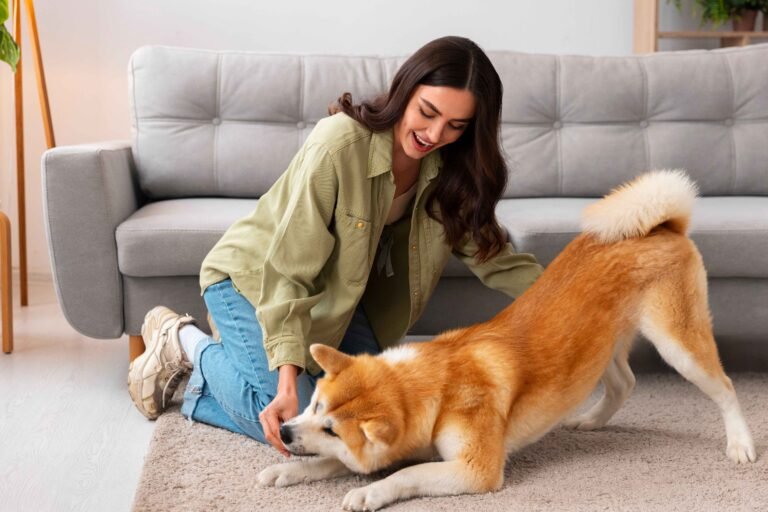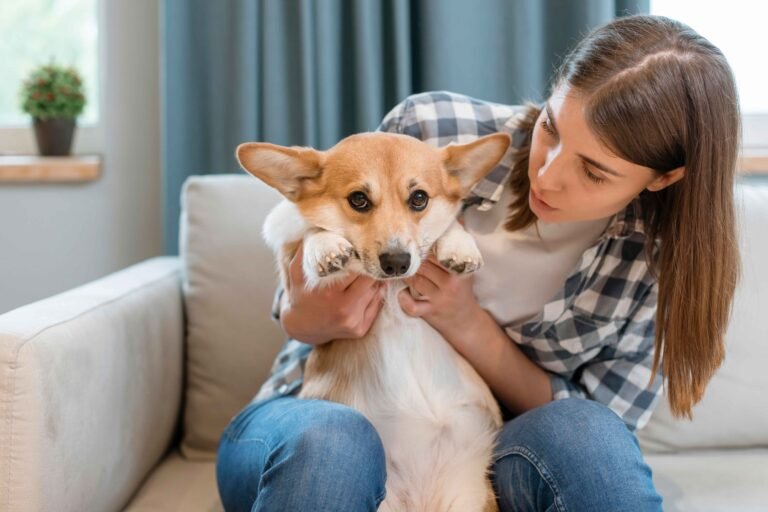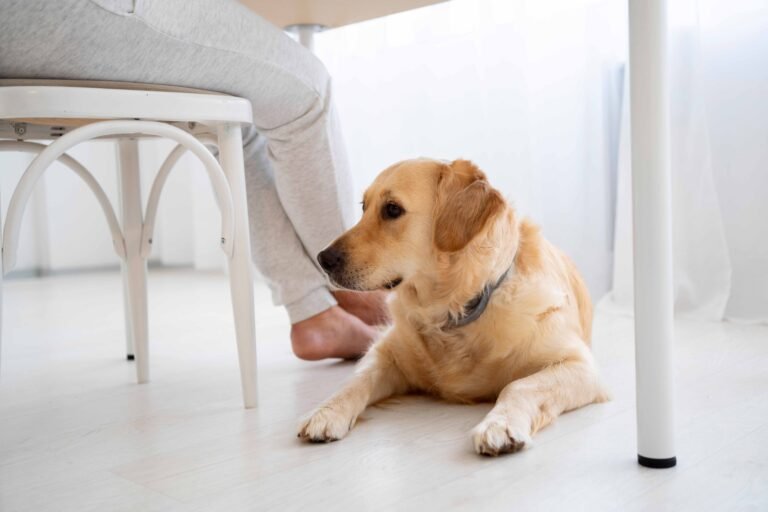Table of Contents
How Calming Dog Collars Work: A Guide for Anxious Pups
Does your dog exhibit storm or separation anxiety? You’re not alone. It’s a question that plagues most pet parents, and if you’ve ever wondered how calming dog collars actually work to calm down your nervous pup, you’re in the right spot. Here’s the scoop on how dog calming collars work, and whether they might just be the perfect fix for your dog.
On dogs: More dogs suffer from anxiety than most of us realize, and as responsible owners we all want the best for our four-legged friends. Whether it’s a fear of loud noises, separation anxiety or general anxiety, calming collars are growing in popularity as a discreet option for calming your pet. But do they actually work? Let’s explore how they work, what to consider and whether they’re a good choice for your anxious dog.
What Are Calming Dog Collars
Some dogs find relief from calming dog collars, which are wearable tools that may help minimize anxiety. Collars are typically infused with natural calming solutions such as herbs, pheromones, or essential oils, and they function by releasing a lingering dose of a low-level scent that’s specifically formulated to calm your pet’s anxious system.
Some collars use pheromone technology to mimic the calming aroma nursing mother dogs use to comfort their puppies. Other versions have lavender, chamomile and valerian root, which is believed to calm. The idea behind it is that as the collar gives off these calming scents, your dog naturally becomes more relaxed without any harmful drugs, or invasive treatments.
Do Calming Dog Collars Work for Anxiety
Now, for the million-dollar question: Do calming collars work? The answer is not as black and white as it may seem and it also depends on what is causing your dog to freak out, as well as how sensitive he is to the effects of the fragrances and/or pheromones.
According to experts and pet owners, calming collars can help alleviate anxiety in most dogs, especially those who have difficulty with only mild cases, or who get stressed out every now and then. Not a fix but a solid support to other ways of dealing with anxiety (training, working out, environmental modifications).source
Pheromone-based calming collars, for instance, have been demonstrated as effective in reducing stress-related behaviors in dogs such as barking and pacing when dogs are placed in some anxious situations (like when being transported or separated from their owners), according to a study published in 2018 in the Journal of Veterinary Behavior.source
Choosing the Right Calming Collar for your Dog
These are calming collars, and which one of these you select actually matters for how well it can work. A few things to think about:
- Material and scent: Calming collars are constructed of either nylon or cotton that has been impregnated with the product’s natural scents. We even create eco-sound material for an EVEN are designed and manufactured.
- Size: You can choose the right size according to the size of your dog. Too Tight of a Collar Can Hurt, Too Loose Won’t Work A collar that is so tight that it chokes your dog can be just as uncomfortable as one that falls around his shoulders and doesn’t do any good. Most collars are adjustable, so you can adjust the fit to be just right for your pup.
- Type of Calming Agent: A few calming collars use herbal scents like lavender or chamomile, which are calming and gentle. Some rely on pheromone-based technology that approximates the smells mother dogs use to calm their puppies. You may need to try various kinds to see what works best for your dog.
- Duration of Effectiveness: Some collars remain effective for 30 days, and you simply change it out each month, while others are only for short-term use. Decide how long you want the collar to be effective.
Adverse Events and Safety Issues
While calming dog collars aren’t inherently risky, there are a few things to keep in mind.
- Skin Sensitivity: He or she (and you) may experience some skin sensitivity if your dog has sensitive skin. If this happens, discontinue use and consult your veterinarian.
- No Easy Answer: Calming collars can help manage symptoms, but often work best when used alongside other modalities say, behavioral training or exercise. They’re not a replacement for getting to the root of what’s making me anxious.
- Interaction With Other Treatments: If your dog is on medication or has been given another treatment, it is always a nice idea to speak with your vet before you provide calming collar. Some can be used in conjunction with medications, but you wouldn’t want to take a chance.
Alternative Anxiety Treatments for Dogs
Calming collars are among numerous of options available for treating anxiety in dogs. Here’s a sampling of things to consider:
- Behavioral Related: Training Dogs are highly trainable and teaching your dog basic commands such as sit, stay and come allows them to feel better control of the environment therefore reducing too much of a stress response. Since every dog is unique, the solution could be more individualized advice from a professional trainer.
- Anti-Anxiety Medication: If a vet believes that a dog’s anxiety is so severe that it can no longer effectively function,anti-anxiety medication may be prescribed. These are not stand lag remedies and caution should be used in their use to avoid creating worse infestations and when pests can be controlled, resistance to the products.
- Thunder shirts: These are shirts that apply gentle, constant pressure to your dog’s chest, kind of the way swaddling a baby can help that baby feel more peaceful.
- Interactive Toys: interactive toys may be able to help with anxiety as they will not only act as a distraction, but also keep your dog mentally stimulated so they are not concentrating as much on their surrounding environment.
Success Story: Real Results with Calming Dog Collars
Calming collars have definitely been a game changer to some dog owners. There’s Max, a rescue dog who’s 3, and whose separation anxiety is far too much to bear. His owner Lisa had been at the end of her tether with Max, who would constantly bark and run around the house every time she went out. Lisa tested a pheromone-filled calming collar; Max’s anxiety diminished dramatically. He has softened and is a totally different pup, especially when it comes to separation.
Stories like Max’s suggest that when used properly, such collars can work, providing dog owners with a simple, noninvasive way to help calm their anxious pets.
Conclusion: Is a Calming Collar Right for Your Dog?
If you’re concerned your dog experiences stress, a calming collar might be the gentle solution you’re seeking. While they obviously aren’t going to work with every pet, many dog parents have found calming collars effective for reducing anxiety and promoting their dog’s overall well-being. Being a dog owner means you should, as always, keep an eye on your dog and see your vet with any specific health concerns.
FAQs
Will a calming collar really help an anxious dog?
Yes, calming collars really work to reduce anxiety in dogs, especially for dogs with mild to moderate anxiety. They work by releasing calming scents, pheromones or herbs, that can aid in calming a dog’s nervous system.
What are calming collars for dogs made of?
Calming collars are typically made of nylon or cotton which has been infused with calming nature scents like lavender, chamomile or pheromones.
How long do dogs need to wear a calming collar for?
How long does it work? The duration varies, but some collars remain effective for 30 days. Follow the manufacturer’s instructions for when to replace.
What are the calming collars for dogs side effects?
If your dog has very sensitive skin and scratches a lot, then you should use caution when making this purchase. If redness or irritation develops, discontinue use and consult your veterinarian.
Can calming collars be used with other anti-anxiety treatments for dogs?
Yes, calming collars can be used in conjunction with other treatments, like medicine or behavior modification, but you’ll always want to check with a vet to see if it’s safe.

